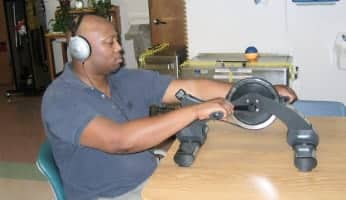Tyler’s Triumph: IM Training’s Impact on Focus, Memory, and Responsibility

Home - Testimonials - Pediatric Testimonials - Tyler’s Triumph: IM Training’s Impact on Focus, Memory, and Responsibility

Tyler’s Triumph: IM Training’s Impact on Focus, Memory, and Responsibility
Tyler is an 11 year old boy with high functioning autism who attends regular education and special education classes.
Before using IM he displayed low tone, poor motor planning, and poor attention and organization skills.
He also demonstrated poor overall motivation.
Tyler could not tie his shoes.
He had difficulty playing the typical games of children his age that involved motor planning, rules and social interaction.
Tyler had language skills but engaged in very little communication. For example, he did not acknowledge his mother when she asked him what he wanted to eat or requested that he clean up his toys.
Tyler’s and Mom’s Goals for IM Training
His mother’s stated goals for Tyler’s IM program were improved organization and motivation skills.
Tyler’s personal goal was to be able to compete with family members when they played Wii.
Starting The IM Program
The IM Long Form pre-test indicated average to severely-below-average scores for Tyler. Tyler was given a four-week, 12-session care plan with adaptations for low tone in his lower extremities (therapy ball), tempo modification and use of the visual mode.
He began with 800 repetitions and by the twelfth session was able to maintain 1800 repetitions that included 30 minutes of continued focus.
During each session he stood in front of a computer with a pair of headphones on. A metronome beat was heard through headphones and visual guides were displayed on the monitor. Tyler was prompted to match each beat with a variety of hand and foot movements, including crossing midline using the modifications mentioned above. The program measures to the millisecond how closely he matched the beat.
Over the course of their therapy sessions, patients using IM learn to:
- Focus and attend for longer periods of time
- Increase physical endurance and stamina
- Filter out internal and external distractions
- Improve fine and gross motor function
- Improve their ability to monitor mental and physical actions as they are occurring
- Progressively improve performance.
Initially, Tyler showed poor motivation and tried to find ways to take frequent breaks. Introduction of a therapy ball during an early session increased his overall compliance.
Progress with IM
After 3 sessions, he independently taught himself in the space of one day to tie shoes.
He also began to learn new gross motor skills in the gym.
More important, he began to demonstrate a noticeable sense of pride in his accomplishments and to work diligently in the program.
After two weeks, his mother said he was acquiring better focus, as well as improved attention, memory and sense of responsibility.
He also beat his brother in a game of Wii.
After three weeks, his mother said, “I was blown away. I asked him to pick some things up, and he said, ‘Sure, Mom, I’ll get it in a few minutes.’”
She went on to say, “He had never done that before!”
Tyler completed the program with above-average scores.
Four months later, his gains, including his newly-developed reciprocal communication skills, remained intact and are growing.
Teresa Garland, MOT, OTR
Brain Tune-Ups, Ann Arbor, MI.




